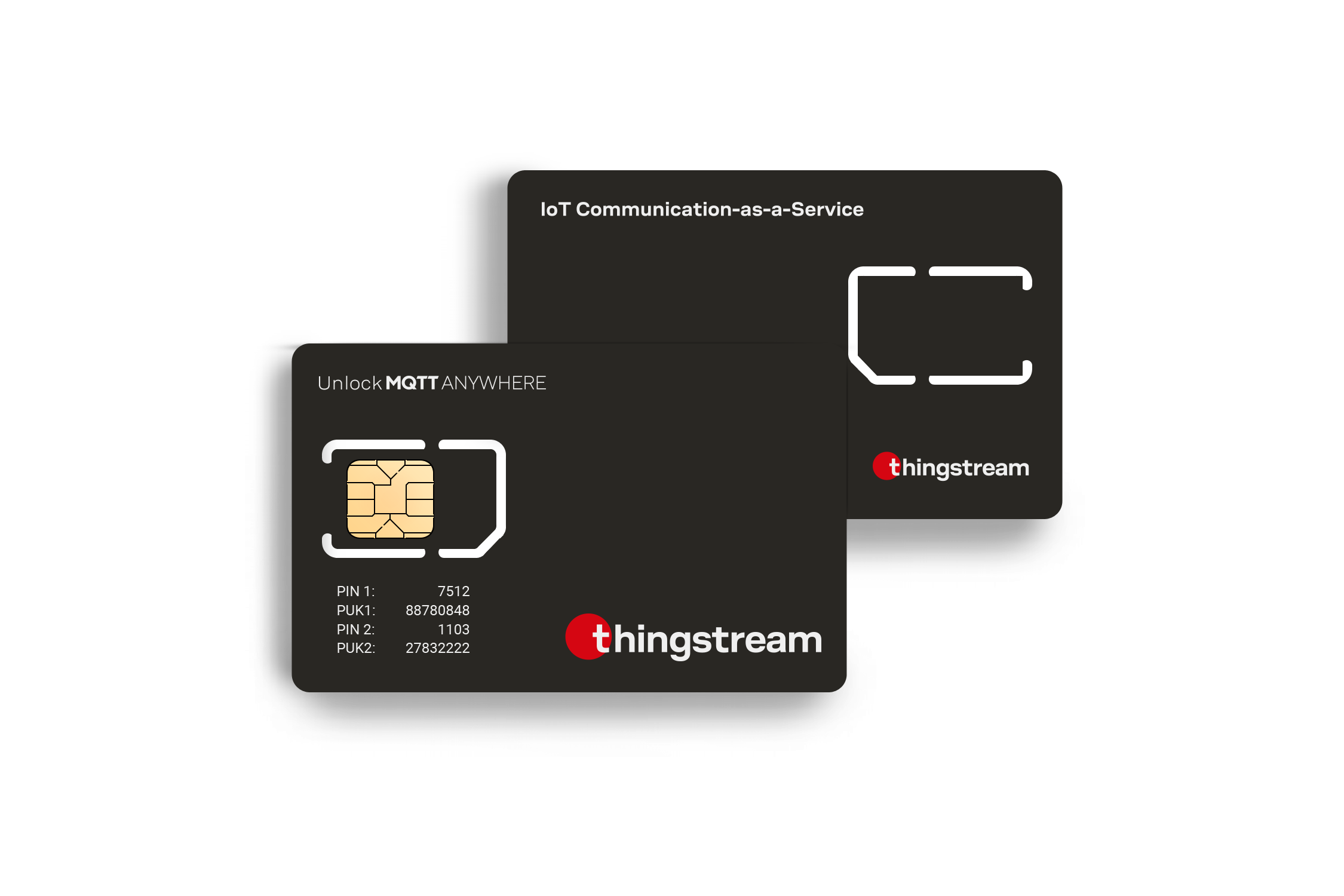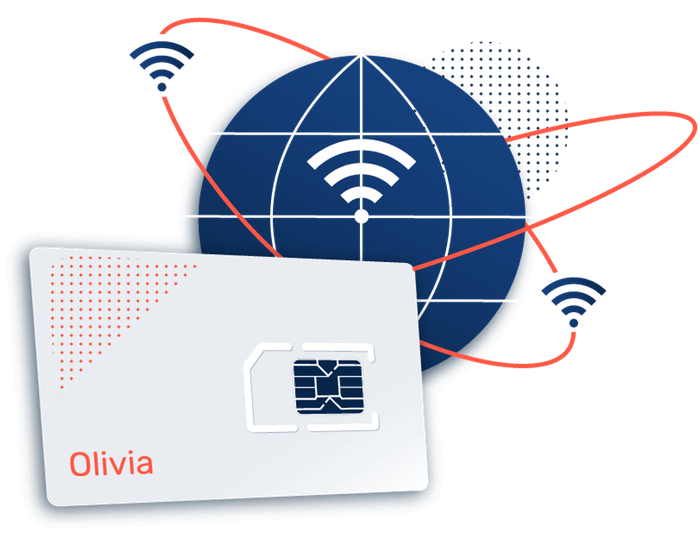Iot Sim Card Guide Why not use consumer SIMs IoT projects
Iot Sim Card Guide Why not use consumer SIMs IoT projects
Blog Article
Iot M2m Sim Card IoT SIM cards
The position of SIM playing cards in IoT connectivity is becoming more and more very important as the world advances in path of a more interconnected panorama. IoT, or the Internet of Things, refers to the vast community of gadgets that communicate with each other and trade information to reinforce performance and effectivity. In this ecosystem, SIM playing cards serve as an essential component, facilitating wireless communication between gadgets.
SIM cards present the required identification that enables IoT devices to hook up with cellular networks. The distinctive identification numbers programmed into these SIM cards enable units to authenticate their connections with service providers. This is crucial because it helps prevent unauthorized entry and ensures that knowledge transfers happen securely.
Sim Card Iot Everything about IoT SIMs
Different types of SIM playing cards are available for IoT applications. Traditional SIM cards, embedded SIMs (eSIM), and detachable SIMs all serve different needs within the IoT space. Traditional SIM playing cards can be inserted into units needing connectivity, while eSIMs are embedded immediately into gadgets and are extra adaptable to adjustments in service suppliers. The versatility of eSIM technology plays a significant position in numerous IoT functions.

IoT devices are obtainable in varied shapes and sizes, from smart house home equipment to industrial machinery. Each kind of device could have different connectivity wants relying on its purpose. SIM playing cards can provide numerous data plans tailored for specific use instances, optimizing communication based mostly on bandwidth necessities, knowledge utilization, and different components. This flexibility is instrumental in enhancing the general efficiency of an IoT ecosystem.
Iot Single Sim Card IoT SIM Cards
Another facet of the SIM card's function in IoT connectivity is the flexibility to trace and manage devices remotely. Mobile community operators supply platforms that allow customers to watch their IoT devices in real-time. This capability is particularly vital in industries similar to logistics and transportation, the place knowing the exact location of belongings can lead to higher operational effectivity and value financial savings.
As IoT devices proliferate, managing connectivity becomes more complicated. Here, the position of SIM cards extends to enabling centralized management solutions that assist administer a quantity of devices simultaneously. This is particularly advantageous for enterprises working giant fleets of related devices, which can monitor performance and connectivity more effectively by way of a single administration interface.
Iot Sim Card Providers eSIM 101 Introduction eSIM IoT
A primary concern in the Internet of Things is security. With hundreds of thousands of devices connected to the internet, ensuring the integrity and confidentiality of information is paramount. SIM playing cards contribute to this security structure by providing encryption capabilities that safeguard delicate data. The cryptographic keys embedded within SIM playing cards assist secure communications between units, making it troublesome for unauthorized entities to intercept or manipulate knowledge exchanges.
Moreover, the position of SIM playing cards is evolving as expertise develops. The introduction of Narrowband IoT (NB-IoT) and Long Range Wide Area Networks (LoRaWAN) has opened new avenues for connectivity, significantly for low-power and long-range purposes. SIM playing cards designed for these particular technologies enable units to function effectively over long distances while consuming minimal power. This is very related for distant monitoring and control methods, where replacing batteries can be costly and difficult.
While SIM cards have made strides in enhancing IoT connectivity, additionally they face challenges. For occasion, compatibility points come up when integrating numerous devices throughout completely different networks. The introduction of standards and laws geared toward harmonizing IoT providers is an ongoing effort, but the tempo of innovation usually outstrips these measures. Hologram Iot Sim Card. Adapting SIM cards to fulfill numerous necessities is important for guaranteeing a seamless experience within the burgeoning IoT landscape.
Cellular Iot Sim Card What is an IoT SIM?

The influence of 5G technology can additionally be reshaping how SIM playing cards function within IoT connectivity. With significantly improved speeds and decreased latency, 5G offers capabilities that redefine IoT purposes, ranging from smart cities to autonomous automobiles. SIM cards designed specifically for 5G networks might be crucial in leveraging the total potential of these next-generation capabilities.
In various sectors, together with agriculture, healthcare, and smart cities, the function of SIM playing cards turns into increasingly crucial. In agriculture, for instance, sensors linked by way of SIM playing cards can monitor soil circumstances, enabling farmers to make informed decisions about irrigation and fertilization. Similarly, in healthcare, distant affected person monitoring gadgets utilize SIM playing cards to transmit vital health data to healthcare suppliers, enhancing affected person care.
The rising reliance on cloud providers in IoT applications typically necessitates sturdy data switch options. SIM playing cards facilitate these connections, enabling units to send and obtain information from cloud platforms successfully. This functionality not solely enhances the functionality of IoT options but additionally improves the ability to research information for better decision-making.
As connectivity evolves, the significance of SIM playing cards in sustaining a robust ecosystem cannot be overstated. Their position in figuring out, securing, and managing units is central to making sure seamless communication within the IoT landscape. Whether it's through traditional SIM cards or newer technologies like eSIMs, their significance will solely proceed to grow in an increasingly connected world.
Iot Sim Card Europe IoT Connectivity Resources Single SIM Card
The integration of artificial intelligence and machine studying into IoT options signifies yet one more evolution in connectivity. SIM playing cards that can handle enhanced knowledge processing capabilities might be essential for the smart decision-making processes enabled by these technologies. Collectively, these advancements will result in more clever systems capable of adapting to altering conditions autonomously.
In conclusion, the position of SIM playing cards in IoT connectivity is multifaceted and essential Resources for the growth and sustainability of an interconnected world. By making certain safe identification, facilitating distant management, and adapting to new technologies, they play a critical part in the evolution of IoT purposes across numerous sectors. As expertise advances, the significance of SIM playing cards will solely intensify, driving additional improvements and enhancements in connectivity methods.

- SIM cards provide a secure and distinctive identifier for IoT units, enabling trusted communication within networks.
- They facilitate seamless connectivity in diverse environments, from urban areas to remote places, enhancing the reliability of IoT purposes.
- With the appearance of Embedded SIM (eSIM) technology, IoT devices can switch carriers simply, enhancing community adaptability and lowering downtime.
- SIM playing cards contribute to knowledge encryption, ensuring that the knowledge transmitted between devices and networks remains secure in opposition to unauthorized access.
- They allow over-the-air updates, permitting producers to push firmware upgrades on to IoT units without physical entry.
- By integrating subscription administration, SIM cards help in sustaining and monitoring knowledge plans, optimizing costs for businesses deploying large IoT networks.
- SIM playing cards improve device monitoring capabilities, making them essential for logistics and asset administration in numerous industries.
- They help multi-network connectivity, which reinforces redundancy and reduces the danger of communication failures in crucial purposes.
- The position of SIM cards in community slicing permits for tailor-made connectivity solutions, ensuring that different IoT applications obtain the appropriate bandwidth and latency.
- SIM cards are pivotal in facilitating device provisioning and administration, streamlining the deployment course of for large-scale IoT implementations.undefinedWhat is a SIM card and why is it essential for IoT?
Iot Sim Card Uk Single-Core Global eUICC IoT SIM
A SIM card is a small chip that permits units to hook up with cell networks. In IoT, it supplies safe communication and allows devices to ship and obtain knowledge, making them accessible and manageable remotely.
How do SIM cards enhance data safety in IoT devices?
SIM playing cards utilize encryption and authentication protocols that guarantee safe communication between the system and the community, protecting towards unauthorized entry and information breaches.
What kinds of SIM cards are utilized in IoT applications?
Best IoT SIM Card IoT Data SIM Card Plans Features
IoT functions usually use specialised SIM cards, similar to M2M SIMs and eSIMs, designed for numerous environments and offering enhanced durability, distant administration, and suppleness in connectivity options.
Can IoT devices operate with out SIM cards?
Iot Sim Card copyright Reliable IoT SIM Cards Global Connectivity
While it is potential for IoT gadgets to attach by way of Wi-Fi or other wireless technologies, SIM playing cards are essential for cellular connectivity and are important for units that require extensive protection and roaming capabilities.
What is the distinction between traditional SIMs and eSIMs in IoT?
Traditional SIM cards are bodily devices inserted into devices, whereas eSIMs are embedded chips that may be programmed remotely, offering larger flexibility for system producers in managing connectivity with out hardware modifications.
How do SIM cards contribute to price administration in IoT deployments?
Free Iot Sim Card Built For Bigger Internet of Things SIM Cards
SIM playing cards allow optimum connectivity solutions, allowing businesses to pick out acceptable data plans and manage information utilization effectively, helping to minimize back operational prices related to knowledge transmission (Cellular Iot Sim Card).
What are the challenges related to utilizing SIM find more information playing cards in IoT?
Challenges can embrace managing a number of SIM cards for varied devices, making certain compatibility, addressing network coverage points, and dealing with potential fraud or safety vulnerabilities in mobile communication.
How can companies choose the best SIM card for his or her IoT needs?
Iot Gsm Sim Card Freeway simHERO IoT Prepaid SIM
Selecting the best SIM entails contemplating components like network coverage, knowledge utilization, device compatibility, long-term scalability, and security measures. Consulting with service suppliers may help align decisions with operational needs.
What position do SIM cards play in future IoT innovations?
SIM playing cards are very important for enabling next-generation IoT improvements, as they facilitate seamless connectivity, drive automation, and improve system management capabilities, thus supporting more advanced functions like smart cities and remote healthcare.
Report this page